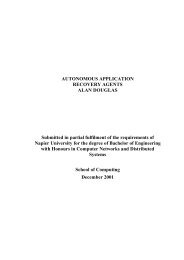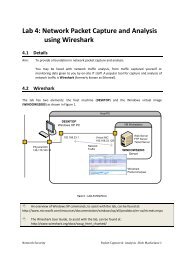Complete set: Intro to C - Bill Buchanan
Complete set: Intro to C - Bill Buchanan
Complete set: Intro to C - Bill Buchanan
You also want an ePaper? Increase the reach of your titles
YUMPU automatically turns print PDFs into web optimized ePapers that Google loves.
Note that the declaration of the array type does not actually create the array, and the<br />
line:<br />
double[] inputValues;<br />
double av<br />
av=inputValues[0];<br />
will cause a build error of:<br />
Use of unassigned local variable 'inputValues'<br />
As the array can not been created yet, and just contains a null value.<br />
3.2.1 Initializing arrays<br />
The arrays when they are initialized are <strong>set</strong> <strong>to</strong> a default value, such as zero for numeric<br />
data types, and null for strings. To initialise it with actual values, the required<br />
values are contained within curly brackets, such as:<br />
int i[] = {10,20,30,40,50}; // First element i[0], Last element i[4]<br />
double[] vals = {1.2,1.4,1.6,1.8,2.0};<br />
string[] menuItems = {"File", "Edit", "View", "Insert", "Tool", "Table"};<br />
This performs both the declaration of the array and its initialization. Program 3.2<br />
shows an example of the declaration of an array of strings.<br />
Program 3.2: Program3_2_ArrayInitializationStrings<br />
using System;<br />
duction <strong>to</strong> .NET<br />
<strong>Intro</strong><br />
namespace ConsoleApplication2<br />
{<br />
class ArrayExample01<br />
{<br />
static void Main(string[] args)<br />
{<br />
int i;<br />
}<br />
}<br />
string[] ColourBands={"BLACK","BROWN","RED","ORANGE","YELLOW","GREEN"};<br />
for (i=0;i


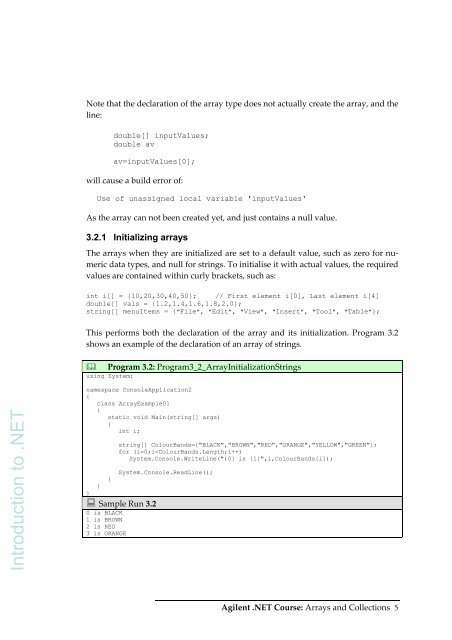
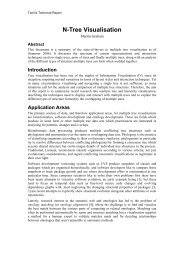
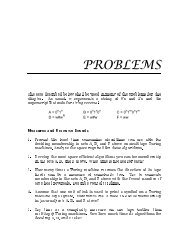
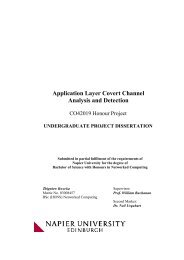




![Unit 5. Switches and VLANs [PDF]](https://img.yumpu.com/34422504/1/184x260/unit-5-switches-and-vlans-pdf.jpg?quality=85)
